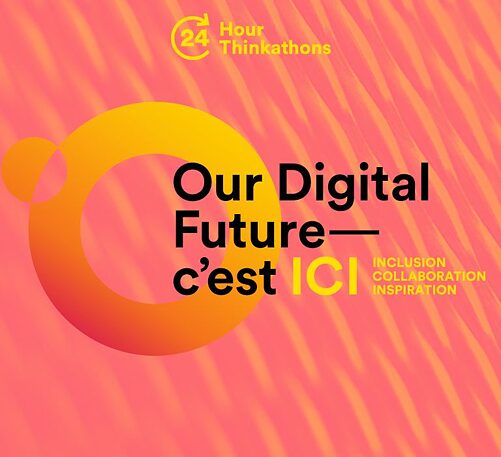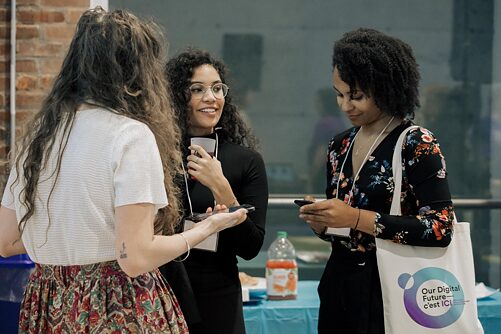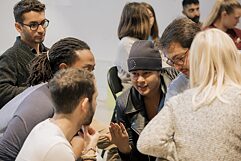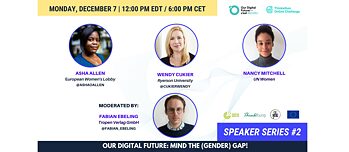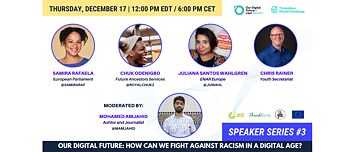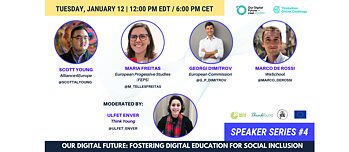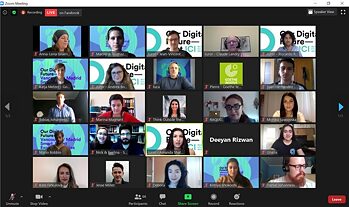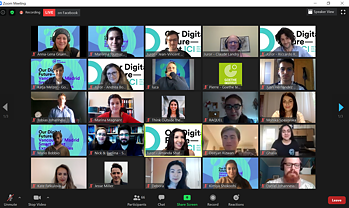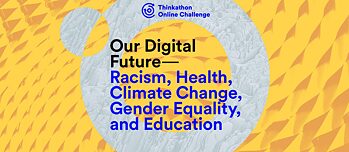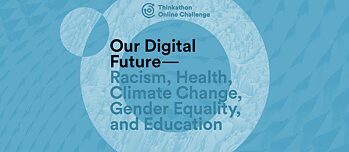Over the past 30 years, a new digital culture, interactivity and instantaneous communication have fundamentally changed our world. We are now at a new crossroads: advances in augmented reality, virtual reality and artificial intelligence; the ‘internet of things’; how we interact with devices and the disappearance of the keyboard; big data and user experience tailored to the individual will all change how we live, work, play and participate in society – administratively, economically, socially and politically.
What are the potential benefits of these changes, what are the potential drawbacks? How can we ensure that such changes lead to the further development of inclusive societies?
During onsite and online events, groups of young Canadian and European adults (aged 18-30) met and debated, with the support of facilitators. The groups were tasked with developing ideas for the political direction of Canadian and European governments. These meetings - first onsite and then online - were accompanied by online workshops for the participants as well as online conferences with Canadian and European experts to suggest ideas and stimulate the participants.
Initially, the participants brainstormed on several problems related to the theme of each event and their effects on digital inclusion (for example: citizenship, social relations, life in cities, racism, health in a post-pandemic time). Among the discussed topics, the most pressing issues were selected for further elaboration under the form of feasible policy solutions and actions.
To tackle these challenges, participants drafted policy recommendations with specific sets of actions to be taken.
Download their recommendations for an inclusive digital future:
After two exciting and successful years of youth transatlantic dialogues, we wrapped up the project with a closing event on Thursday, 25 February 2021 with presentations by Thinkathon winners from across the EU and Canada and a discussion of their recommendations with policy makers.
Invited speakers and policy makers:
- Melita Gabrič, Ambassador of European Union to Canada
- Philipp-André Rodriguez, center for International Digital Policy
- Chris Glover, Member of Provincial Parliament (MPP), Legislative Assembly of Ontario
- Marta Markowska, European Commission
- Dragos Tudorache, Member of the European Parliament (Renew Europe)
How can technology help to solve current issues such as: racism, gender equality, health, education and climate change? How can we ensure that the solutions to these issues do not exclude lower-income households, people of colour, women, or LGBTQQIP2SAA individuals?
Follow the discussion accompanying our Online Thinkathon Challenge #2 with our speaker series highlighting inspiring experts and policy makers.
